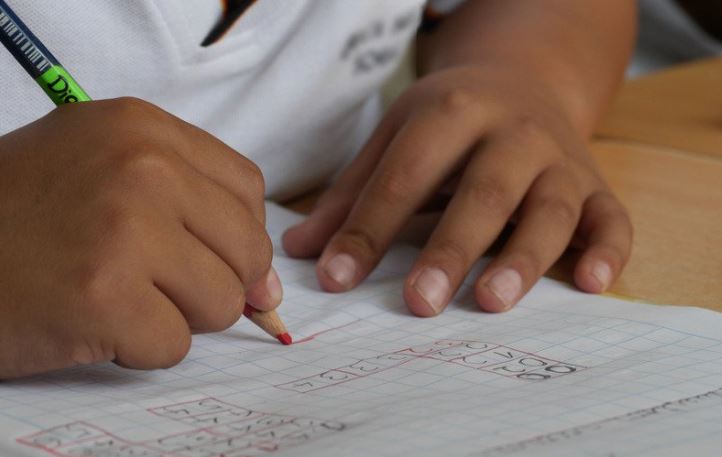DNR: News Digest – Week of Feb. 8, 2021
|
||||||||||
News Digest – Week of Feb. 8, 2021
Spend some time on the ice with your valentine over Free Fishing Weekend. |
||||||||||
|
|
||||||||||
News Digest – Week of Feb. 8, 2021
Spend some time on the ice with your valentine over Free Fishing Weekend. |
||||||||||
|


Press Release FOR IMMEDIATE RELEASE: Feb. 5, 2021 CONTACT: Bob Wheaton, 517-241-2112, wheatonb@ Michigan approved for food assistance for 810,000 children whose access to free or reduced-cost school meals is affected by COVID-19 More than $741 million in federal dollars will help families put food on the table LANSING, Mich. – Approximately 810,000 Michigan children whose access to nutritious school meals has been affected by the COVID-19 pandemic will receive $741.6 million in assistance benefits that their families can use to pay for food at stores or online. Gov. Gretchen Whitmer and the Michigan Department of Health and Human Services (MDHHS) are announcing that the state has gained federal approval for a second round of Pandemic-EBT benefits. “The last thing that families should have to worry about during a pandemic is feeding their children,” Gov. Whitmer said. “I am happy that Michigan families will be able to count on this additional support to help them access nutritious meals during the ongoing pandemic. That’s why it’s so important that the legislature passes the COVID recovery plan I put forward that provides an additional $2.1 billion in food assistance as well as the much-needed support for vaccine distribution, small businesses, and getting our kids back in the classroom safely.” Students in grades pre-kindergarten through 12 are eligible if they qualify for free or reduced-price lunches at school and in-person learning is not available at their school or is not available on a full-time basis. Pandemic-EBT will provide another way for students who do not have in-person classes to access food – along with Michigan Department of Education (MDE) programs that provide meals to students at mobile and stationary locations. Families will receive an estimated $127.53 monthly for each eligible child who has no in-person classes and attends a school that is fully virtual and about $77.06 for each eligible child who attends a school with a hybrid schedule of in-person and remote learning. Monthly benefits will vary based on the number of school days in each month. Benefits are retroactive to September and will be paid through June. Payments will be paid automatically, so families do not need to apply to receive the assistance. Households that already receive food assistance will receive the Pandemic-EBT payments on their Bridge Cards. Families that do not already receive food assistance will receive Pandemic-EBT cards in the mail that they can use to purchase food. Payments are expected to begin in late March. MDHHS is working in partnership with the MDE to collect information from local school districts that’s needed to issue the benefits. Last school year, Michigan was the first state in the nation to gain approval of and distribute Pandemic-EBT benefits. New federal rules for approval of Round 2 funding for this school year delayed Michigan’s approval. President Joe Biden’s administration provided increased flexibility that allowed Michigan to be approved. “Throughout the pandemic, MDHHS has been committed to providing easy access to food to families who have been impacted by the pandemic,” said MDHHS Director Elizabeth Hertel. “Approval of the second round of Pandemic-EBT payments is the latest example of how we can work with our federal partners to ease the burden on families who are in need.” The food assistance benefits will go to Michigan families with students ages 5-18 who are enrolled in the MDE program for students eligible for free or reduced-price school meals. “With waivers from USDA initiated by MDE, school districts across the state have distributed tens of millions of meals to children in approximately 2,000 mobile and stationary feeding operations since the pandemic began. Children need to be healthy and fed to be able to focus on learning,” said State Superintendent Dr. Michael Rice. “The P-EBT program supplements these school meals and helps enormously to feed our children across the state during this difficult time.” The food assistance benefits will go to Michigan families with students ages 5-18 who are enrolled in the MDE program for students eligible for free or reduced-price school meals. The Michigan Department of Health and Human Services received authorization from the U.S. Department of Agriculture Food and Nutrition Services to provide the additional food assistance. Prior to receiving their EBT card, families will receive a letter from MDHHS describing how to use the card, how to set up a PIN and other information about food assistance benefits. The cards can be used much like a debit card for food purchased from Supplemental Nutrition Assistance Program (SNAP) retailers. You can find a list of SNAP retailers on the SNAP Retailers website. They also can use their benefits online to purchase food from Amazon, Walmart or Aldi. Information around coronavirus outbreak is changing rapidly. The latest information is available at Michigan.gov/Coronavirus |

Covering all 22 OAA teams with insight and thoughts on each team from Northern Oakland County to Southern Oakland County.

Written Thursday February 4th at 4:30 PM
Winter contact sports are back.
During her press conference on Thursday afternoon, Governor Gretchen Whitmer announced that she along with the Michigan Department of Health and Human Services (MDHHS) was going to allow contact Winter Sports to start practicing and competing Monday with safeguards in place.
Participants including players, coaches, and staff are required to wear a mask during in play and on the bench. Those sports without masks, particularly wrestling will be required to go through COVID-19 testing.
The MDHHS recommended that players only allow two per player for spectators or 250 for smaller venues, 500 for bigger venues.
The five contact sports include Boys and Girls Basketball, Wrestling, Hockey, and Competitive Cheer
Contact sports were banned on November 18th when Whitmer and then director Robert Gordon announced “the pause.” The remaining fall sports were paused played a few weeks ago because the Michigan Department of Health and Human Services announced that there was an antigen testing program that tested the remaining fall sports athletes that were still playing.
Today was a great day for everyone involved, players, parents, coaches, staff, athletic directors, superintendents.
Important Dates.
Basketball/hockey: Monday Feb 8th (Practices/Competitions)
Cheer/Wrestling: Friday Feb 12th (Practices/Competitions)
MHSAA Tournaments remain in place
Cheer/Hockey March 27th
Wrestling April 2nd/3rd
Basketball (will run together) Girls M/W/F Boys T/R/S Girls April 9th, Boys April 10th
Face masks worn at all times (Basketball/Hockey/Cheer)
Wrestling- MDHHS (rapid testing on days of meets) compete One to Two times a week
Cheer- masks (only time masks come off when tumbling/stumbling), without an opponent, physical contact.
Basketball six weeks of regular season, three games a week. (Can play when teams are eliminated.)
Stay tuned to OAA Now for the latest on this developing story.

Waterford, Michigan – Oakland County veterans, service members and eligible dependents impacted by the pandemic and needing financial help can apply for up to $2,500 in assistance through the Veterans COVID-19 Emergency Financial Relief Program.
A total of $182,000 is available through the grant provided by the Michigan Veterans Affairs Agency. There is a cap of $2,500 per person, including food assistance, which has a $150 limit. The grants can be used for eligible food, utility, property taxes and personal care expenses. Applications can be made at www.oakgov.com/covid/grants.
“There are more than 60,000 veterans in Oakland County and many of them are struggling to make ends meet,” said Oakland County Executive David Coulter. “Some veterans have lost jobs or income, while others may be faced with higher food bills and other increased expenses. These grants are designed to help those who sacrificed for our country in the past get some much-needed help today.”
Applicants must be an Oakland County resident and honorably discharged from the U.S. Army, Navy, Marine Corps, Air Force, Coast Guard, National Guard, reserves or women’s auxiliaries. Eligibility documentation is required.
Those without access to the internet should contact the Oakland County Veterans’ Services Division in Pontiac at 248-858-0785 for assistance.
“We expect strong interest in this new program,” said Garth Wootten, division manager. “The need is there, for the day-to-day living expenses for our veterans have not gone away during the pandemic. We hope these grants make life easier for them as they live through these challenging times.”
Oakland County has used $219 million in federal Coronavirus Aid, Relief and Economic Security (CARES) Act funding in support of its pandemic response, including more than $145 million in grants to help stabilize and support small businesses, residents, and communities in every part of the county. The grants were awarded to more than 15,000 local businesses, which employ 65,000 people; 22 local chambers of commerce; 57 cities, villages, and townships, 278 non-profit and 31 veterans services organizations; 28 local school districts as well as retailers, restaurants and community centers.


|